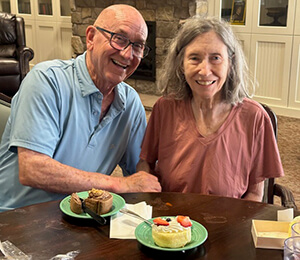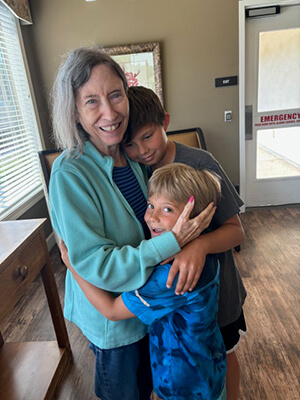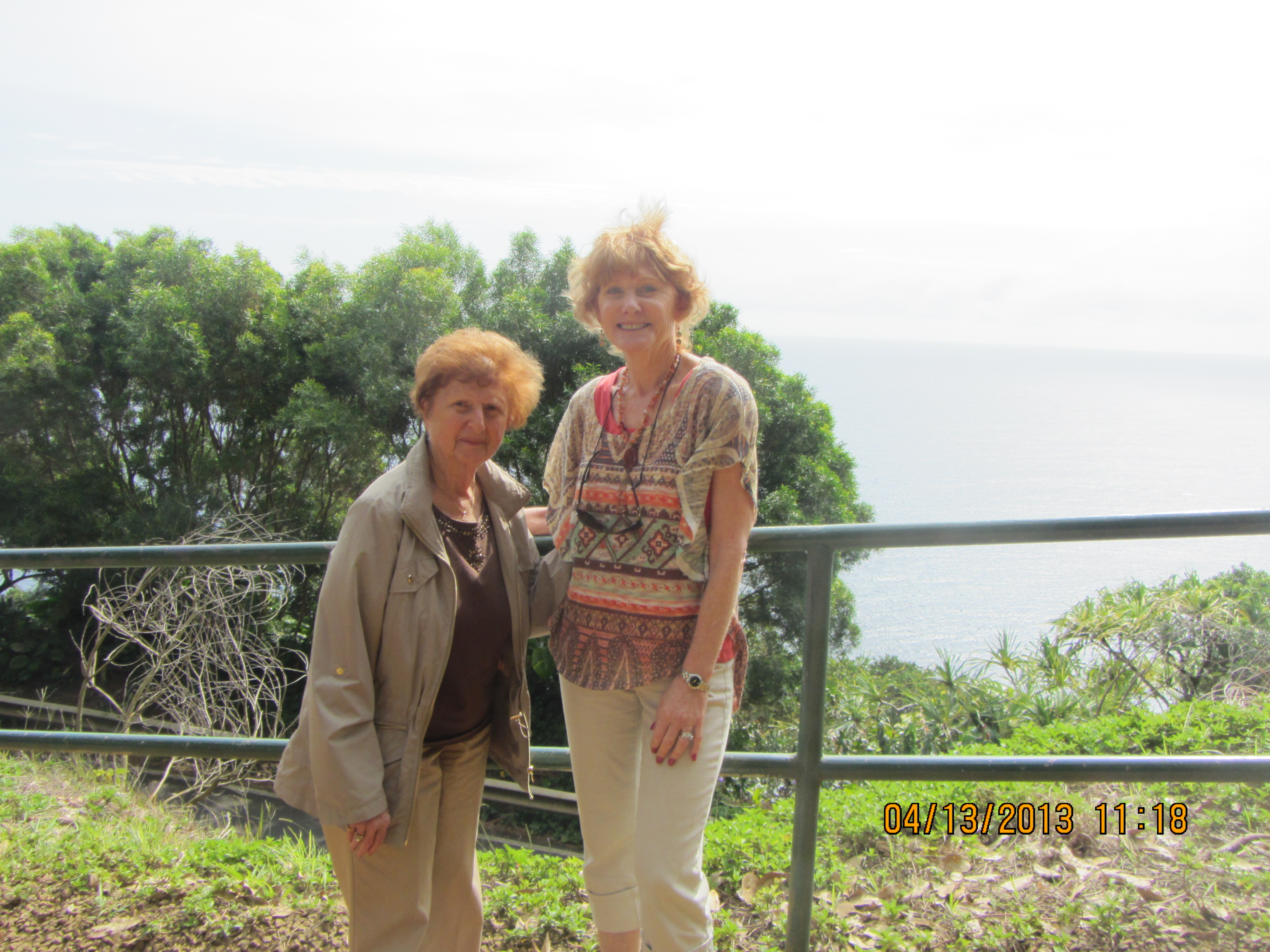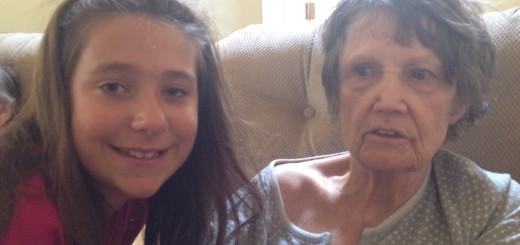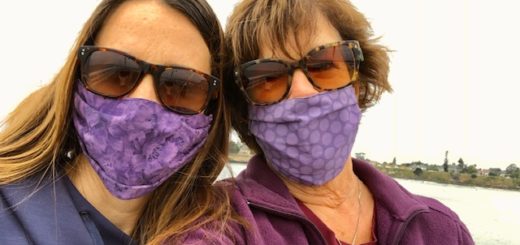Young athletes, big hearts: Cross-country team helps coach raise funds for Alzheimer’s
Bob Gray, a middle school cross country coach in Fresno, CA, teaches his young athletes the importance of giving back to their community. In return he finds these kids give him the renewed energy he needs to care for his wife, Julie, who was diagnosed with dementia 10 years ago. Bob and his team raise funds for Walk to End Alzheimer’s in Fresno-Madera in the hopes of one day finding a cure.
A tough childhood
Julie’s childhood was not an easy one. When Julie was one, her father was institutionalized most likely due to undiagnosed post-traumatic stress disorder (PTSD) from his time spent in World War II. Then, six years later, her mother died unexpectedly during heart surgery. Julie was adopted by her aunt and uncle where she went from being the only child to one of four children in the household.
Julie left for college and never went back. She attended Stanford University and eventually married. While the marriage didn’t work, Julie now has two daughters. Julie became a teacher at a middle school where she worked in special education as a resource specialist. It was there that she met Bob, who would become her husband for the next 38 years.
Emergency back surgery
In 2014 Julie was diagnosed with dementia. Because of their background in special education, Bob feels that he and Julie were uniquely qualified to handle her dementia symptoms. “I was an adaptive P.E.(physical education) teacher,” said Bob. “I helped with movement issues and functional skills. Julie worked with kids with learning disabilities and processing issues. Which is what Julie has [now]. I tell people I’ve been preparing for this all my adult life.”
At first, Julie was able to continue comfortably living at home. Occasionally she’d wander off from home and Bob would quietly follow behind her. However, Bob was having terrible back pain and had a hard time keeping up with Julie.
By 2021 Bob’s pain was so severe that he knew he needed to see a doctor. After receiving an MRI, he was told he’d need surgery right away. June’s daughters came to help in the short term, but it became clear to everyone that Julie would need to move into a care setting.
“I found a [care setting] but hadn’t committed [to moving Julie there] but they had an opening,” said Bob. “I placed her there and it was the hardest thing I ever did. She’s been there ever since. [It was also the] best learning experience I ever had. You really got involved.
“I’d been going to Alzheimer’s support group meetings for a couple of years. I understood a little, but until it happens and you have to make decisions, you just don’t know. In the last three years, I’ve learned more than I learned in the first 74 years [of my life].”
Coaching cross-country
Alzheimer’s caregivers frequently report experiencing high levels of stress. It can be overwhelming to take care of a loved one with Alzheimer’s or other dementia.
Bob decided to reduce his stress and do something for himself, ultimately, he landed on coaching middle school cross country. Bob says, “Their energy is so different from anything I do. It gives me the strength to go over twice a day and be with my wife. They make it better.”
As a coach, Bob feels like it’s not just about running that is important, but also helping the 70 kids he coaches to become better people by thinking of others. “We end every practice with a cheer to get them pumped up,” said Bob. “[One of the things we say is], ‘Do something nice for someone without expecting anything in return.’ We say this every day.”
Kids raise funds
Towards the end of each cross-country season, Bob share Julie’s Alzheimer’s story with his team. He explains what the disease is and asks if any one there has experience with dementia. He explains about the Alzheimer’s Association Walk to End Alzheimer’s® and the importance of raising funds in the hopes of finding a cure, not for Julie, but for future generations.
“I explain [the disease] to the kids and I show them a picture and video of Julie,” said Bob. “I ask if they have anyone with Alzheimer’s at home and [there are] six or seven out of 70 [who raise their hands]. [I send home] a letter to the parents [asking for a donation]. We put it in an envelope, and I won’t know who gave and who didn’t.
“I get really nice responses from parents thanking me for doing this and having their kids involved in this kind of activity. I’m not going to buy you pizza or take you on a field trip. This is something you’re doing for the community. It’s not about winning, it’s about teaching kids you can run and give back.”
This year, Bob and his cross-country team raised more than $1,400. Bob also asked members of the community to match what the kids raised. Overall, his efforts with Coach Gray’s Team, has raised nearly $8,000.
Participating in Walk
Walk to End Alzheimer’s is the world’s largest fundraiser for Alzheimer’s care, support and research. For Bob’s cross-country team, the season is usually over by the time the Walk to End Alzheimer’s in Fresno-Madera happens. However, that doesn’t stop a couple of kids from coming out and participating.
“The first year (four years ago), [the kids] painted everyone’s faces,” said Bob. “They got really into it.”
Bob also enjoys seeing some of the same families come out to the event every year. “[Walk is] kind of a joyous thing,” said Bob. “You get all these people out there. People you haven’t seen for a year. Two years ago, before [the event] started I was sitting at the table with people who come every year, and he was talking about his mom. How she passed 10 years ago and they’re still coming out. It amazes me.”
Finding his passion
Shortly after Julie’s diagnosis one of her daughters was tested to see if she had the gene for Alzheimer’s. Julie’s daughter has two copies of the gene (one from Julie and one from her biological father) making it highly likely that she will get the disease.
Because of this, Bob has expanded his effort to not only include fundraising but also to advocate by working with members of congress. His hope is to make changes through legislation such as increasing dementia research funding and extending early detection training for health professionals.
Ultimately Bob wants members of congress to understand that it’s not just about the person living with the disease but the whole family who needs help, guidance and resources. In 2023 Bob went to Washington D.C. with several other Alzheimer’s advocates to help do just that.
“When I retired, I didn’t have a purpose anymore,” said Bob. “I’ve replaced [work] with Alzheimer’s and advocacy. My passion is supporting my wife. Someone, who is going through it has to share that there is hope. That when you speak with passion and purpose, then the people who want to make a change understand. That’s what I want my love for Julie and energy and passion to touch people. For them to say, ‘Oh yeah.’”
Seeing positive changes
Despite everything, Bob focuses on the positive changes in his life since Julie’s diagnosis. He has seen Julie bring joy to the lives of the staff in her care setting as she dances and smiles at them. He’s also watched as Julie’s childhood anxiety has melted away. Julie no longer worries that she’s to blame for anything that goes wrong.
Additionally, Bob has made new friends, both through dementia support groups and from other families at Julie’s care setting. Bob says that while he has become a better person since Julie’s diagnosis, Julie has become a more wonderful person.
“My goal was that Julie would make a difference to the people [at the care setting] and in my life,” said Bob. “She has caregivers that love her, always dancing with them and kiss them on the cheek and smiling, it’s a wonderful thing to see. I’m [at the care setting] two times a day at lunch and dinner. I’m a better person now than I was five years ago.
“I now have a family of choice over there. All these people who visit their spouses over there, we’re very close. I look at them, 20 years ago I never would have thought these people would be my friends, you get this same thing with the support group. They will tell you how the day is going and it’s not going well.
“When Julie does get upset, she’ll storm off, walk halfway down the hall, turn around, see me and it’s like the first time. I get second chances every other minute.”
Just keep moving
Bob encourages other caregivers to just keep moving forward. “I know when you first find out [your loved one has the disease] you’re overwhelmed. Until it happens to you, you don’t know. You’ll have good days and bad days but the good and the bad always happen, so you hold on the good and survive the bad and keep moving forward.
“Julie was a very good person before and is an even more wonderful person now. I’m very fortunate that I have this. Sometimes she sees me and I start dancing and she starts dancing back and copying the movement. She knows I am the person that makes her feel valued. There are wonderful heart tugging moments, every day I have a magic moment with Julie. I’m not going to give up. I’m going to embrace each moment and just keep moving forward.
It’s not too late to raise funds for Walk to End Alzheimer’s. You can donate to Bob’s team, Coach Gray’s Team or start your own team and make a donation at alz.org/walk. Fundraising for the 2024 season continues until December 31, 2024.






